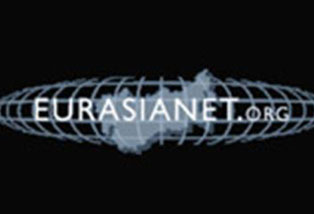Molly Corso
In Georgia, some people are asking whether a get-out-of-jail card costs $73 million.
Questions started arising after Georgian President Mikheil Saakashvili on December 2 pardoned imprisoned Israeli businessmen Ron Fuchs and Ze’ev Frenkiel, who were serving seven and six-and-a-half-year prison terms, respectively. Saakashvili’s order came after Tramex, a company with which Fuchs and Frenkiel were involved, agreed to shave $73 million off an international arbitration tribunal’s $98 million judgment against the Georgian government.
The 61-year-old Fuchs and 64-year-old Frenkiel were convicted last April of attempting to provide Georgian Deputy Finance Minister Avtandil Kharaidze with a $7-million kickback, reportedly in a bid to speed up payment of the arbitration award. The Tramex case revolved around a dispute over rights to Georgian oil and gas pipelines into Turkey.
Georgian leaders characterized the pardon as a humanitarian gesture related to Fuch’s and Frenkiel’s poor health. Israeli President Shimon Peres, cited by Israeli media as a friend of Fuchs, is also said to have lobbied on the pair’s behalf. The two men are now in Israel, according to a reported distributed by The Jerusalem Post.
Hovering in the background is another potential explanation for the release. On the same day the pair left prison, Georgia’s Ministry of Justice announced that a settlement had been reached in Tbilisi’s dispute with Tramex and Fuchs’ Greek business partner, Ioannis Kardassopoulos.
Deputy Justice Minister Tina Burjaliani told journalists the deal between the government and Tramex shaved $73 million off the award (now valued, with interest, at $110 million) against Georgia. The World Bank’s Washington, DC-based International Centre for Settlement of Investment Disputes (ICSID) ruled against the Georgian government in March 2010.
While the Georgian government has long denied any connection between the criminal case and the arbitration dispute, the unpaid award has overshadowed its bribery case against Fuchs and Frenkiel. In particular, the bribery charges revived long-standing criticism of Georgia’s judiciary system as being subservient to government interests. In response, President Saakashvili has touted Georgia as being “number one in this region in terms of absence of corruption.” He had declined to comment on the case, stating in February that “[I]t’s not my business. It’s the business of the court,” the government-financed PIK TV station reported.
The timing of Saakashvili’s pardon adds fresh weight to those earlier concerns that the Georgian justice system is under executive branch control, noted Georgian Young Lawyers’ Association (GYLA) Chair Tamar Chugoshvili. The ministry’s announcement made it “clear” that the case against Fuchs and Frenkiel was a maneuver to avoid paying the full arbitration award, she asserted. “[T]his arrest gave a $70-million savings for the state budget,” Chugoshvili contented. [Editor’s Note: GYLA receives funding from the Open Society Georgia Foundation, part of the Soros Foundations network. EurasiaNet.org operates under the auspices of the Open Society Foundations, a separate entity in the Soros network].
The pardon followed three months of intense discussions between the two sides, according to the ICSID website.
President Saakashvili’s office stressed that the pardon has nothing to do with the arbitration case. Presidential spokesperson Manana Manjgaladze told journalists that the president decided to free the men for “humanitarian reasons” and because of their allegedly poor health.
Frenkiel suffered a heart attack in September when he was relocated to a prison nearly 200 kilometers away from the Tbilisi-area facility in which he had been held together with Fuchs. According to Fuchs’ attorney, Archil Kbilashvili, the two entrepreneurs suffered from stress and a lack of sleep after allegedly experiencing harassment that same month carried out by unidentified masked men and restricted contact with other prisoners. Conditions improved – including access to the Internet, phones and a scanner – after intervention by the Israeli Embassy, he claimed.
Kbilashvili greeted the pardon as long overdue. Despite an earlier denied appeal, the two men had “waited for parole . . . from the first day,” although “[w]e did not know particularly when it would happen,” he said. The experience apparently has not dampened Fuchs’ interest in Georgia. The businessman is writing a book about his arrest and imprisonment, said Kbilashvili, and would even consider coming back to visit -- if he receives an “official” invitation.




